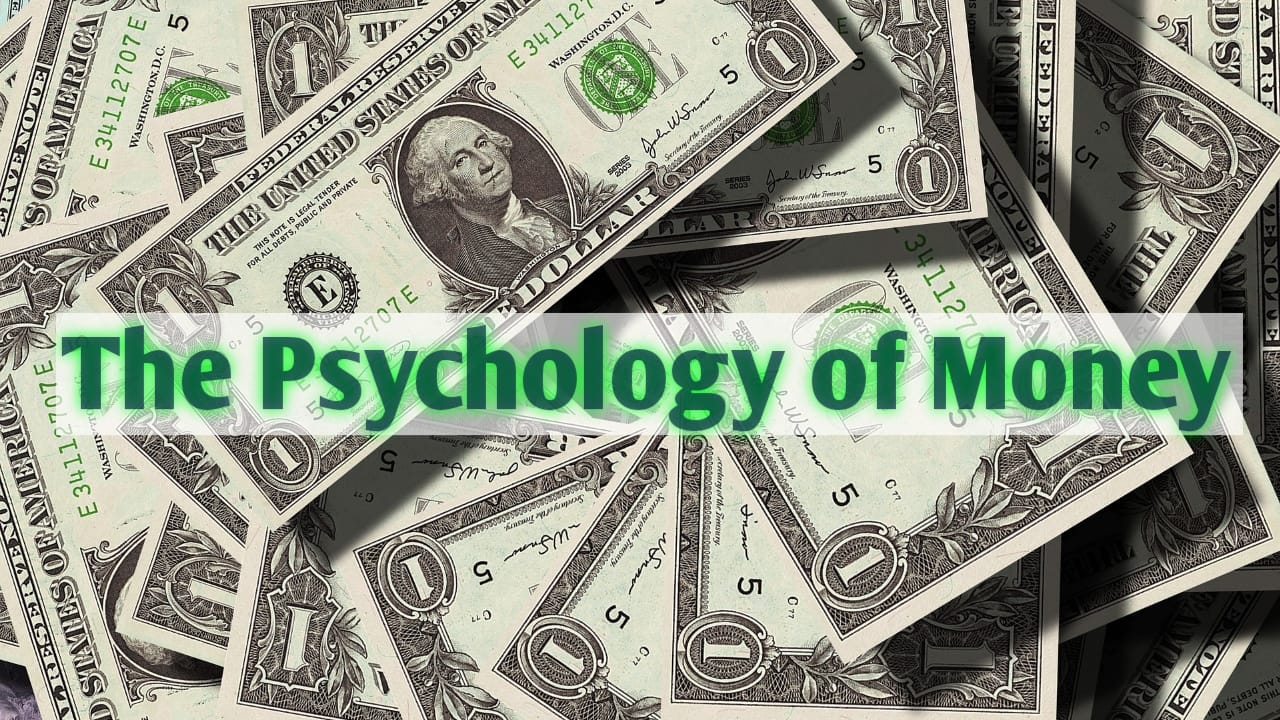hey everyone have you ever wondered why some people seem to handle money effortlessly while others struggle constantly? In this article, we’re going to explore five crucial lessons that you need to learn from it Stick around till the end; you won’t want to miss this lesson. One of our financial decisions is often more emotional than logical. How so? Cell argues that.
Our lesson one: Money and psychology.
Relationship with money is shaped not by cold, hard facts but by our personal experiences and emotions. Imagine two people with the same income but completely different upbringings one grew up in a household where money was always tight, while the other never had to worry about finances. How do you think they’ll approach their financial decisions The first might be overly cautious, focusing on saving, while the second might be more willing to take risks. This means each of us has a unique money. The world is influenced by our past, and that world doesn’t always align with economic reality Recognizing this can help us make better financial choices and avoid common pitfalls lesson two our beliefs about money are deeply personal and can vary dramatically, affecting our financial outcomes. Howell explains that.
Lesson two: Different Perspectives on Money.
Our views on money are shaped by our life experiences, and these views can either Propel us towards success or hold us back. Consider two investors: one grew up during a severe economic downturn and the other during a booming economy, the first is likely to be risk-averse, clinging to their savings, while the second might be more adventurous chasing High returns: this difference in perspectives can lead to vastly different financial results, which emphasizes the importance of being aware of these differences and re-evaluating our beliefs about money to make wiser decisions lesson three: real wealth isn’t just about the numbers in your bank account it’s about having control over your time in life, as Cells suggests.
Best investing lessons from billionaires 2025
Lesson three: Happiness and Wealth.
That one of the biggest misconceptions we have is that more money automatically equals more happiness. Think about it: if you have plenty of money but no time to enjoy it, are you truly wealthy? Or if you’re stuck doing something you hate just to earn a paycheck, is that real success? How Sell argues that the ultimate goal of accumulating money should be to gain more freedom—freedom to choose how you spend your time and who you spend it with—so the next time you think about money, ask yourself, is it helping you build the life you want, or is it just another number? Lesson Four Never underestimate the power of compounding. You might have heard this before, but have you truly grasped it?
Lesson four: The Power of Compounding.
Significance compounding is one of the most powerful forces in finance and housing.
will drive this point home by showing how small, consistent investments can lead to massive growth over time, let’s break it down with a simple example. Suppose You save and invest a small amount every month; initially, it might seem like it’s not making a big difference But as time goes on, thanks to the power of compounding Those small amounts begin to grow exponentially, turning into something. substantial house cell argues that while most people are looking for big wins, true financial success comes from the steady, persistent application of the compounding principle. It’s not about making one big bet; it’s about consistently Doing the right thing over time: Lesson five: Success in finance isn’t just about skill. It’s also about luck and risk. Morgan Housel reminds us that while we often credit financial.
Lesson five: The Role of Luck and Risk.
Success, skill, and intelligence: luck and timing play a significant role as Well, think about the stories we hear of people who struck it rich; it’s easy to attribute their success to hard work and smart decisions, but how so? It warns that we must also recognize the role of luck and risk in these outcomes. this lesson teaches us two things: first, we should never underestimate the power of luck in our successes, and second, we should always be prepared for the risks involved in any financial decision, diversifying your investments, and being aware of the risks can help you navigate the unpredictable nature of finance.
That’s a wrap on the key lessons from The Psychology of Money. These points are just a glimpse of the valuable insights Morgan Housel shares in his book for a deeper understanding, we strongly recommend reading the full book. The post provides a general overview and isn’t a substitute for the complete text. Howell goes into much more detail, and we’ll be exploring more of these insights in future posts If you found this post useful, please subscribe for more content Thanks for reading, and see you next time

I am going to read this book